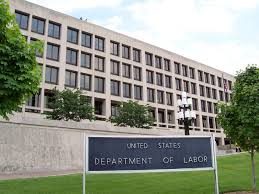
Labor Roundtable – November 9, 2022
Virtual Labor Roundtable
November 9, 2022, from 3- 5:00 pm (ET)
Virtual Roundtable to discuss the DOL’s Proposed Rule on Independent Contractor Classification Under the Fair Labor Standards Act
The Office of Advocacy will host a roundtable to discuss the Department of Labor’s proposed rule that modifies its analysis for determining whether a worker is an employee or an independent contractor under the Fair Labor Standards Act. The roundtable will take place on November 9 from 3-5:00 p.m. (ET). Roundtable participation details will be provided upon receipt of RSVP. Comments on this proposed rule are due on December 13, 2022.
RSVPs should be sent to Janis.Reyes@sba.gov. The purpose of the roundtable is to gather specific small entity input on the proposed rule.
Agenda
3:00 p.m. – 3:05 p.m.
Introductory Remarks
Janis Reyes, Assistant Chief Counsel, SBA Office of Advocacy
3:05 p.m. – 3:20 p.m.
Briefing on DOL’s Proposed Rule
Jessica Looman, Principal Deputy Administrator, Wage and Hour Division, DOL
Seema Nanda, Solicitor, DOL
3:20 p.m. – 5:00 p.m.
Input from Interested Small Entity Stakeholders
Presentations made during this roundtable will not substitute for written comments directly from interested parties to the DOL. Advocacy strongly encourages small entities to provide both oral presentations during the roundtable and written comments to the rulemaking docket. Written comments on this proposed rule are due on December 13, 2022.
Roundtable meetings are open to all interested persons, except the press, in order to facilitate an open and frank discussion about issues of interest to small business. Agendas and presentations are available to all, including the press. Anyone who would like to receive roundtable agendas or presentations, or be included in the regular distribution, should contact janis.reyes@sba.gov. The purpose of these roundtable meetings is to exchange opinions, facts, and information and to obtain the attendees’ individual views and opinions regarding regulatory and policy issues affecting small business. The meetings are not intended to communicate or achieve any consensus positions of the attendees.
Small Entity Roundtable
Issue for Discussion
November 9, 2022
DOL’s Proposed Rule on Independent Contractor Classification Under the Fair Labor Standards Act
On October 13, 2022, the Department of Labor’s Wage and Hour Division (DOL) proposed a rule that would determine whether a worker is an independent contractor or an employee under the Fair Labor Standards Act (FLSA). Under the FLSA, companies are required to provide benefits such as minimum wage and overtime to employees, but not to independent contractors. To determine whether a worker is an employee or an independent contractor, the employer must analyze whether the worker is economically dependent on the employer for work or is in business for themselves.
The proposed rule would rescind a prior Trump administration rule, which adopted a test focused on two core factors – control and profit. DOL proposes an economic realities test that requires a totality-of-the-circumstances analysis of multiple factors.
Under this proposed rule, the factors are:
- The opportunity for profit or loss depending on managerial skill.
- The investments by the worker and the employer.
- The degree of permanence of the work relationship.
- The nature and degree of employer control.
- The extent to which the work performed is an integral part of the employer’s business.
- The worker’s use of skill and initiative.
In its Initial Regulatory Flexibility Analysis, DOL estimates that millions of small businesses could hire and/or be independent contractors. DOL estimates compliance costs of under $25, which includes an estimate that it will take small businesses 15 to 30 minutes to read and understand the rule. Advocacy seeks feedback on the numbers of small businesses affected and the compliance costs of this rule, and any regulatory alternatives that would minimize the impact of this rulemaking.
Comments on this rule are due on December 13, 2022.
- Read and submit comments on the proposed rule in the Federal Register.
- Read the press release from DOL.
- Advocacy contact: Janis Reyes or (202) 798-5798
